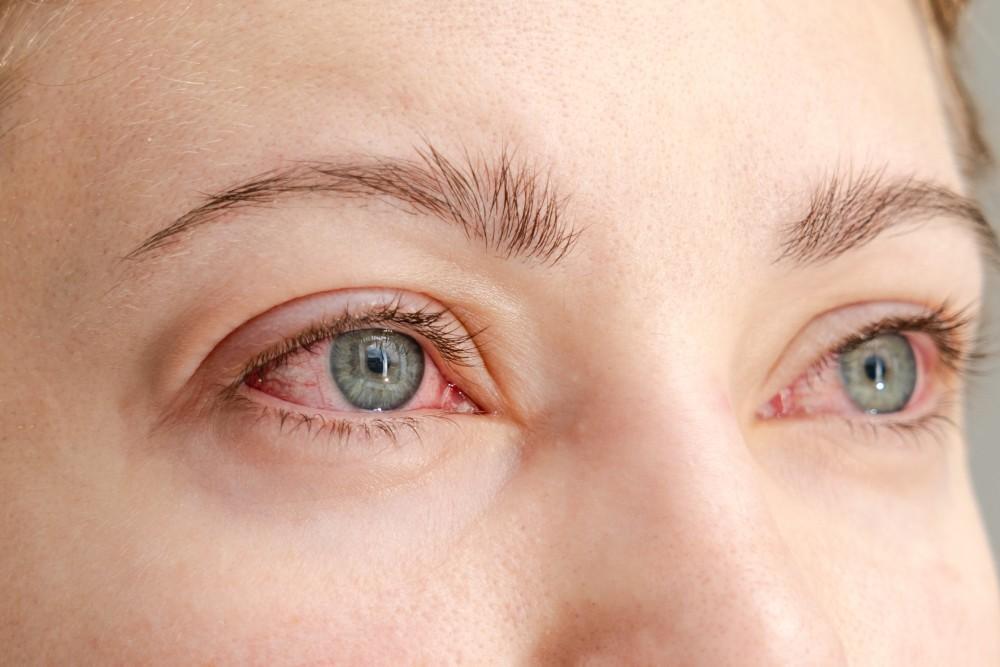
5 Lifestyle Habits for Promoting Long-term Eye Health

Your eyes are your window to the world; caring for them is more than just wearing glasses to correct vision issues. From eating eye-friendly foods to protecting your eyes from harmful ultraviolet (UV) rays, there are many ways to promote long-term eye health.
At Bainbridge Eye Care, we prioritize the long-term health of your eyes. As a practice established for over 20 years, we dedicate our experience to providing exceptional eye care services. Our providers 一 Nicanor Lacsina, O.D., and Yelena Pinkhasova, O.D,.一 strive to offer the highest quality care and top-of-the-line products to our valued patients in the Norwood neighborhood of Bronx, New York City.
Recommended by our providers, you should adopt the following five lifestyle habits into your daily routine to maintain optimal eye health and prevent vision problems:
1. Exercise regularly
Regular exercise is not only beneficial for your overall health but also plays a significant role in promoting long-term eye health. Physical activity increases blood circulation throughout the body, including the tiny blood vessels in the eyes. Improved blood flow delivers essential nutrients and oxygen to your eyes, keeping them nourished and functioning optimally.
Exercise helps to maintain a healthy weight and manage conditions such as diabetes and high blood pressure, which are risk factors for various eye diseases. By reducing the risk of these systemic conditions, exercise indirectly contributes to preserving the health of your eyes.
Additionally, physical activity promotes better sleep patterns and reduces stress levels, positively impacting eye health. So, whether it's a brisk walk, a yoga session in Central Park, or any other form of exercise you enjoy, incorporating regular physical activity into your routine can go a long way in supporting the long-term well-being of your eyes.
2. Schedule yearly wellness eye exams
Regular eye exams are crucial for detecting and managing eye conditions early. At Bainbridge Eye Care, we recommend yearly wellness eye exams to monitor your eye health and identify potential issues.
Our experienced team can detect common eye diseases such as glaucoma, diabetes-related eye problems, and cataracts through comprehensive examinations. Early detection leads to early intervention, significantly increasing the chances of successful treatment and preserving your vision.
3. Follow a balanced diet
Maintaining a balanced and nutritious diet is vital for overall health, including the long-term well-being of your eyes. Several foods that promote eye health and provide essential nutrients for optimal vision include leafy green vegetables like spinach, kale, and collard greens. These foods are rich in lutein and zeaxanthin, antioxidants that help protect the eyes from harmful UV rays and reduce the risk of developing age-related macular degeneration and cataracts.
Brightly colored fruits and vegetables, such as oranges, strawberries, carrots, and bell peppers, are excellent vitamin C sources and beta-carotene. Vitamin C aids in the prevention of cataracts, while beta-carotene converts to vitamin A, which is crucial for good vision.
Additionally, omega-3 fatty acids found in fatty fish like salmon, tuna, and mackerel, as well as in flaxseeds and walnuts, are beneficial for the health of the retina and help combat dry eyes.
4. Manage underlying health conditions
Diabetes can have detrimental effects on your eyesight if not managed. High blood sugar levels can lead to diabetic retinopathy, a condition that affects the blood vessels in the retina.
To protect your eyes, it's essential to manage any underlying conditions that can impact your eyes, such as diabetes and hypertension. Managing these conditions entails following a diabetic-friendly diet, regularly exercising, monitoring your blood sugar levels, and taking prescribed medications as directed by your provider. Additionally, scheduling regular eye exams is crucial for early detection and intervention if diabetic eye problems arise.
5. Make sunglasses an essential accessory
Whether sunny or cloudy outside, your eyes need protection from harmful UV rays. Prolonged exposure to ultraviolet light can increase the risk of cataracts and other eye conditions.
Wear sunglasses with 100% UV protection whenever outdoors to safeguard your eyes. Sunglasses are also beneficial when skiing, snowboarding, surfing, jet-skiing, or boating.
We offer prescriptions and non-prescriptions for sunglasses, sports sunglasses, and sunglasses for children.
Comprehensive eyecare in a comfortable, trusting environment
Take charge of your eye health today by incorporating these lifestyle habits into your routine. Visit Bainbridge Eye Care for your yearly wellness eye exam and experience the expertise of Dr. Nicanor Lacsina, O.D., and Dr. Yelena Pinkhasova, O.D.
Get started by calling 718-306-9127 or requesting an appointment online today. Together, we can work towards preserving your vision for a lifetime of clear sight and healthy eyes.
You Might Also Enjoy...


5 Signs You Need a New Corrective Lens Prescription

Eye-Friendly Habits You Can Start Today

Vision Changes with Age: What’s Normal, and What’s Cause for Concern?

Understanding How Diabetes Can Diminish Your Ocular Health and Impair Your Vision

